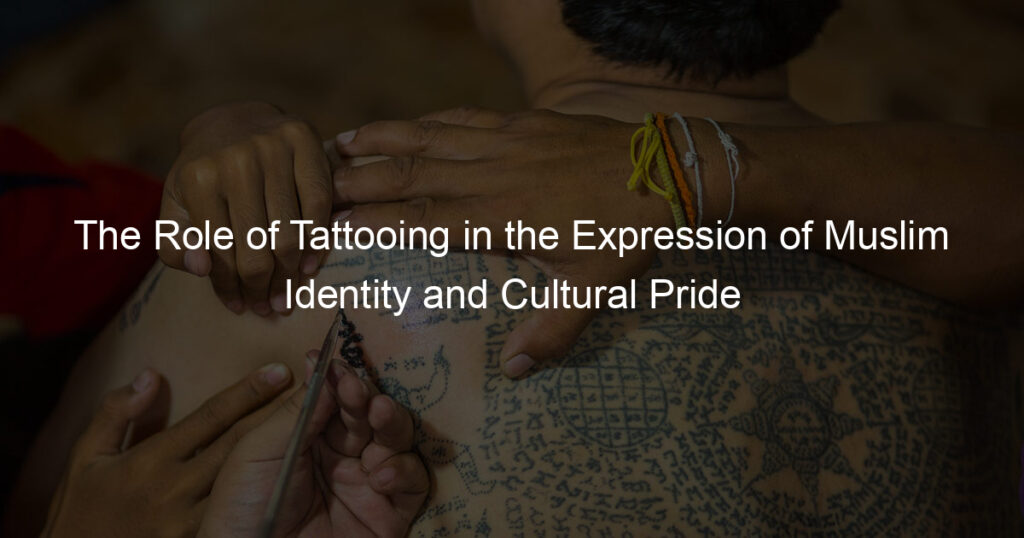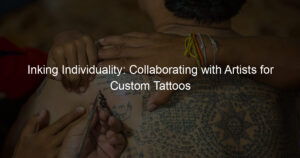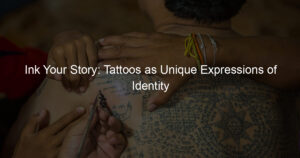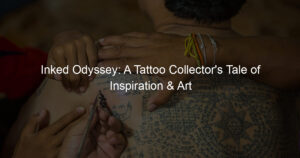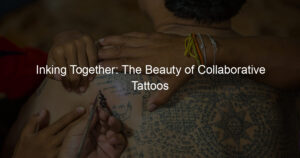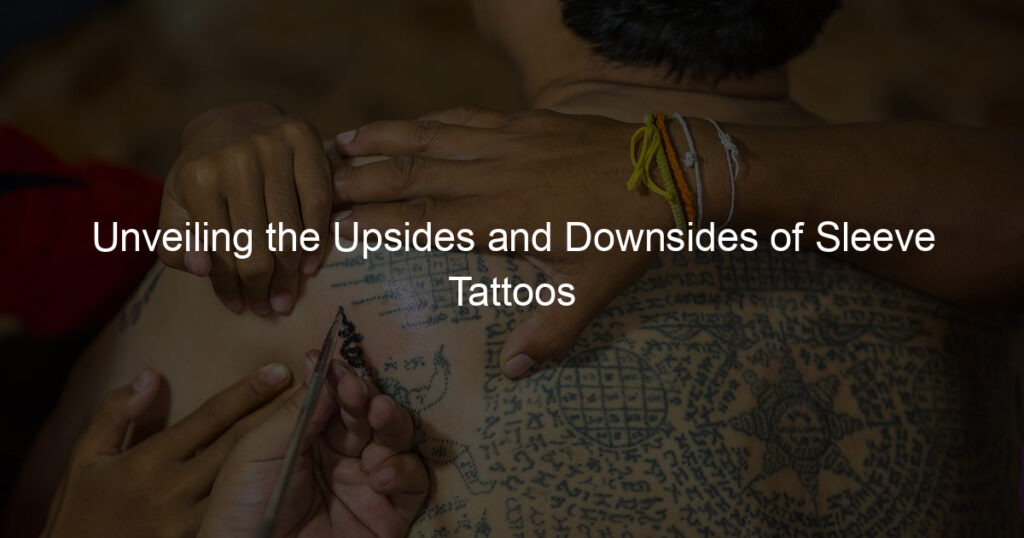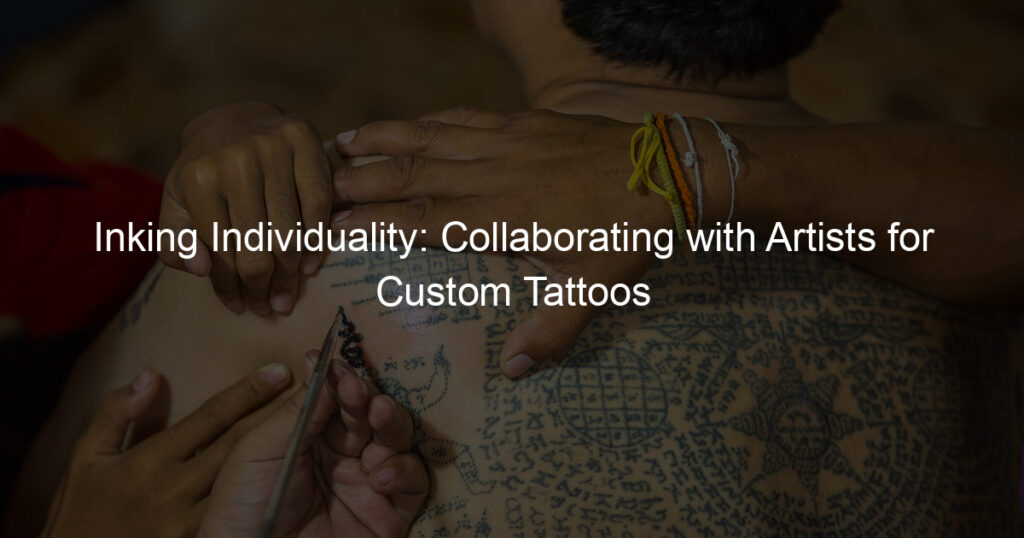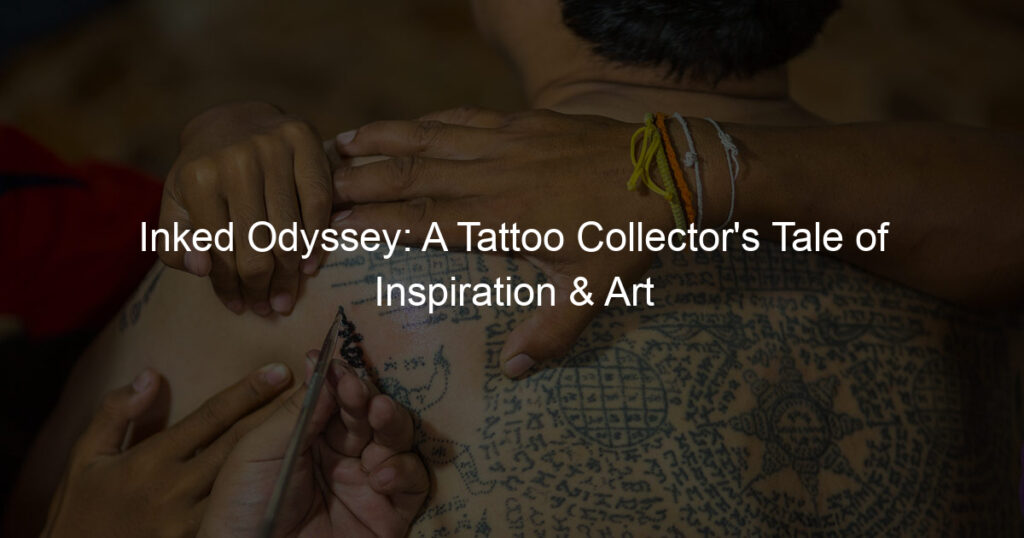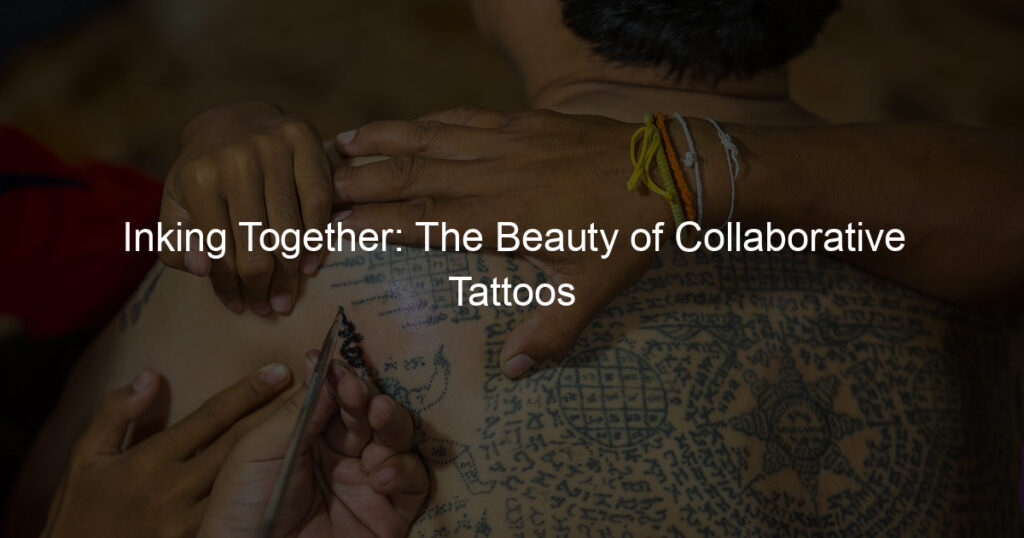Most people in the West think of tattoos as strictly decorative, an expression of personal style. But for many Muslims around the world, tattoos serve a much deeper purpose: they are a way to express religious and cultural identity. In some cases, they are even seen as a form of protection from evil spirits. Whatever the reason, there is no doubt that tattoos have become an important part of Muslim culture. Here we take a closer look at this fascinating phenomenon.
What does the Muslim religion say about tattoos?
In the Muslim religion, tattoos are traditionally seen in a negative light. Tattoos are viewed as a form of body modification that is forbidden under Islamic law. It is believed that by altering your body, you are disobeying God’s will.
However, opinions towards tattoos have shifted over the years; while some devout Muslims still view tattoos as sinful, others believe it depends on the intent behind the tattoo and may permit it if the believer seeks spiritual meaning from it. Ultimately, opinions about tattoos differ depending on who you talk to within the Muslim community.
Why are tattoos allowed in Islam?
Islam hasn’t always condoned tattoos, but seeing as many people have them nowadays, it’s become an accepted practice. Some Islamic scholars argue that tattooing is okay if the intent behind it isn’t to harm the body or to disrespect God or Islam in any way. As long as a tattoo isn’t something forbidden by Islamic teachings (e.g., profane words, symbols of other faiths), then it isn’t viewed badly.
The thought is that if a person wants to wear a tattoo for self-expression and personal artistry, then there’s nothing wrong with that from an Islamic point of view. In short, because tattoos don’t go against Islamic values if they’re done according to Sharia law, they’ve become acceptable in Islam today – offering an interesting place where religion and personal creativity converge!
What kinds of tattoos are allowed in Islam?
Tattoos are a form of personal expression and can be meaningful to those who choose to get them. However, if you’re a follower of Islam, it is important to know what tattoos are allowed according to the faith. Generally speaking, Islamic scholars advise against getting any permanent body art that might bring disrepute or detract from the tenets of the faith.
Temporary art, such as henna tattoos, remains acceptable as long as it does not contain any negative or inappropriate imagery. When it comes to permanent tattooing, Islam advises against putting anything on your body that could lead people astray spiritually or physically – which can include symbols representing idols or deities of other faiths. Ultimately, whether you decide to get a tattoo depends on your convictions – so make sure you weigh all your options carefully!
What is the connection between tattooing and culture?
Tattooing has long been an important part of cultural expression amongst people around the world. It has both a spiritual and practical significance, serving as an identifier for members of tribes, or groups of individuals with shared ideologies. While historically symbolic tattoos were used to ward off evil spirits, differentiate social statuses or even express religious affiliations, today’s tattoo trends tend to vary more widely.
For example, some people choose to get simple decorative tattoos like birds or animals to symbolize their belief in freedom and independence, while others opt for geometric designs traditionally found within various spiritual traditions. In this way, it’s easy to see how delicate yet deeply-rooted connections between tattooing and culture continue even today.
What is the impact of tattoos?
Tattoos have been around for centuries and are still popular today, with people all over the world inking their bodies as a form of self-expression. Though artistic, tattoos can also be powerful symbols of religious beliefs, personal values, and/or social movements.
Additionally, they can be meaningful reminders of loved ones or events throughout history. While there is much debate about the impact of tattoos on an individual’s life, some studies suggest that tattoos can benefit others. For instance, for people suffering from certain skin conditions like vitiligo or psoriasis, tattoo ink may improve coloration and texture around an affected area.
Moreover, in a research study conducted by San Francisco State University, it was found that those with tattoos experienced less anxiety during stressful situations than those without one. Ultimately, whether you choose to adorn your body with a tattoo is entirely up to you; just bear in mind that the decision could affect not only you but those around you too.
Summary: The Role of Tattooing in the Expression of Muslim Identity and Cultural Pride
The Arabic calligraphy tattoos popular among Muslims, whether they are words of Devine prayer or declarations of cultural reminders, are evidence of a range of expressions. They all break the bounds of rigid traditions and express an ever-changing Muslim identity.
The practice and tradition of tattooing have long been used as a form of history-making with religious expression done in devotion to Islam, but over time its use has allowed members of Muslim communities to express themselves while pushing the boundaries of their faith.
In this way, tattooing has come to symbolize more than just spiritual devotion; it is now a symbol of the identity and pride shared by those who have tattoos relevant to their heritage or faith.

